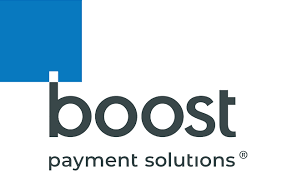Dive Brief:
- Buy now, pay later provider Affirm’s revamped payment card had about 300,000 active cardholders as of mid-August, after adding about 75,000 each month since late May, the company said in its fourth fiscal quarter earnings report Thursday.
- Affirm customers who use the card have three times more transactions than customers overall, according to the shareholder letter providing the report. Affirm also offers is services through a mobile app. The gross merchandise volume for transactions with the card was $70 million in July, the company said.
- Meanwhile, 51% of consumer transactions using the card during the quarter, which ended on June 30, were made with interest-bearing loans, while 42% were pay-now purchases and 7% were pay-in-four installment transactions, the report said. “This was driven by a favorable product mix with high-margin, interest-bearing loans, accounting for approximately 80% of Affirm Card GMV and 50% of transactions,” the report said.
Dive Insight:
The results come after Affirm’s chief financial officer acknowledged in June that the company had faced a difficult economic environment this year.
Affirm’s net loss for the fiscal fourth quarter widened to $206 million from the year-earlier net loss of $186.4 million, as revenue climbed 22% to $446 million on an 8.1% increase in GMV, according to the report.
The company rebranded its payment card as the “Affirm card” last month, dropping the “Debit+” card moniker. It’s a debit card that lets customers pay for a purchase right away by way of debit, or request to pay over time via the company’s app, a spokesperson for the company said by email.
Affirm executives told analysts on a Thursday earnings call that they’re seeking to increase consumers’ habitual card use, with more use for lower-value transactions.
Lower-margin pay-now debit transactions amounted to about 10% of the card’s GMV, and 40% of transactions, the company said. Affirm aims to increase the pay-now portion, Levchin told analysts,
“Affirm, on average, is used basically four times a year and that's great, but not nearly enough,” said CEO Max Levchin told analysts on the call. “If you're trying to be a payment network, you have to be there for doughnuts and coffee, and for bicycles and couches, and we've more or less conquered the bicycle and couch space and we're trying to take our unfair share of donuts and coffee.”
Levchin noted that Affirm will eventually extend rewards for consumer purchases. “We have a lot of work to do,” Levchin said. “There's certainly room to create consumer rewards that we have not yet launched.”
When one analyst asked about the one million people who had been on a waiting list for the card, the executives explained their slow approach to rolling out the card.
“While I am gushing air over this meeting product we finally rolled out, on the other side of that equation is a super Spartan view of credit,” Levchin told analysts. “We can't afford to screw that up, and so we're not going to.” He declined to detail when the company will pursue a broader offering.
Early results from the roll-out of the Affirm card suggest “that consumer engagement can increase materially from current levels,” RBC Capital Markets analyst Dan Perlin said in a note to clients Thursday. Nonetheless, Affirm’s guidance for future results also “incorporates a modest headwind expected from the resumption in student loan repayments (Oct. 1, 2023) and no improvement in the macroeconomic environment,” he said.
The company’s executives stressed that the company takes a careful approach to extending credit, with its own proprietary assessment of each transaction. Another analyst, Dan Dolev of Mizuho Securities, noted in a Thursday report for clients, that Affirm was able to further reduce loan delinquency rates during the quarter.
A delinquency figure provided by the company excluded loans in connection with stationary bike maker Peloton, which was previously a major merchandiser extending Affirm financing. Affirm has diversified its business away from Peleton over the past year as that retailer’s business has soured.













